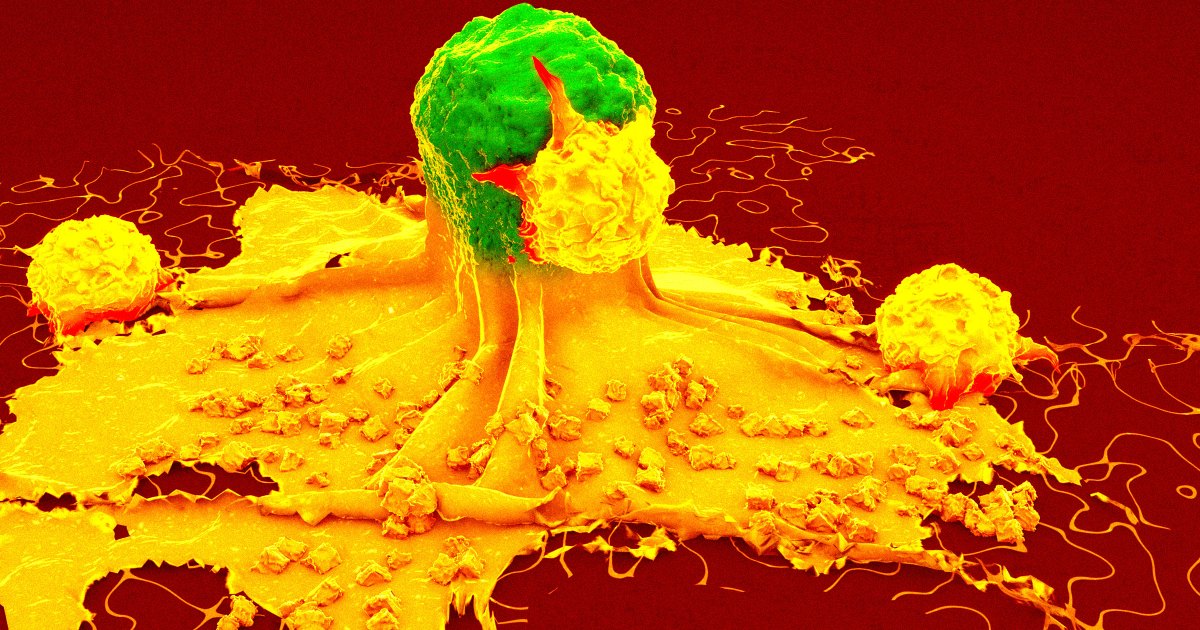
"As detailed in a new paper published in the journal Cell Reports Medicine, the shot works by encasing adjuvants, which substances that increase or modulate the immune response to a vaccine, and melanoma peptide antigens, short amino acid sequences that can be recognized by the body, inside specialized lipid nanoparticles. In one experiment, the team found that 80 percent of vaccinated mice that had been exposed to melanoma cells three weeks earlier remained tumor-free for 250 days, the full duration of the study."
""Metastases across the board is the highest hurdle for cancer," Atukorale added. "The vast majority of tumor mortality is still due to metastases, and it almost trumps us working in difficult-to-reach cancers, such as melanoma and pancreatic cancer." In a separate experiment, 88 percent of vaccinated mice exposed to pancreatic cancer rejected the tumor, while 75 percent and 69 percent of mice exposed to breast cancer and melanoma cells fought it off."
A lipid-nanoparticle vaccine encases adjuvants and melanoma peptide antigens inside specialized lipid nanoparticles to enhance immune activation via multi-pathway stimulation. Vaccinated mice developed tumor-specific T cells capable of recognizing and attacking cancer cells. In one melanoma experiment, 80 percent of mice exposed three weeks earlier remained tumor-free for 250 days, while unvaccinated or non-nanoparticle-vaccinated mice all developed tumors and died within 35 days. Separate experiments showed tumor rejection rates of 88 percent for pancreatic cancer, 75 percent for breast cancer, and 69 percent for melanoma. The approach aims to prevent metastasis-driven mortality by priming robust T-cell responses.
Read at Futurism
Unable to calculate read time
Collection
[
|
...
]